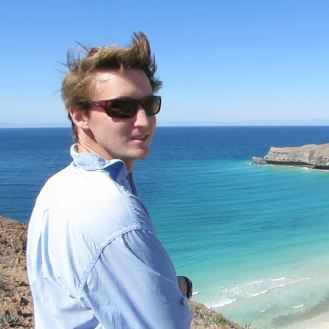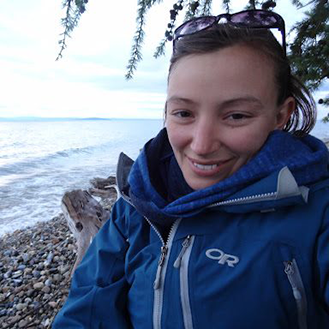Three doctoral students from California universities have been selected for the 2016 NOAA National Marine Fisheries Service (NMFS)-Sea Grant Fellowship. Mikaela Provost, Daniel Ovando and Robert Dunn have been awarded the program’s Population and Ecosystem Dynamics Fellowship, which supports research on ways to assess the status of marine ecosystems, fisheries and protected species.
Graduate students apply for the award through one of 33 Sea Grant programs. Fellowship recipients work under the guidance of their advisors and NMFS mentors to address issues critical to the management of U.S. fisheries. California’s three newest fellows will be tackling the questions below:

How does harvesting the largest “predators and prey” impact Southern California reefs?
August 2016 – July 2019
Robert Dunn
Dunn is a Ph.D. candidate studying ecology at San Diego State University and the University of California, Davis. His research focuses on predator-prey interactions on nearshore reefs, including southern California's rocky reefs and Caribbean coral reefs.
Dunn will model how harvesting the largest individuals at different levels of the food chain can impact Southern California’s rocky reef ecosystems, using spiny lobsters and red urchins as a test case. Spiny lobsters are a predator of red sea urchins, who in turn are kelp grazers with the capacity to create “kelp barrens” when present in large numbers. Since fisheries generally target the biggest individuals, they may remove an ecosystem’s most effective predators and herbivores.

Can MPA monitoring data be used for stock assessments?
August 2016 – June 2018
Dan Ovando
Ovando is a Ph.D. student at the Bren School of Environmental Science and Management at the University of California, Santa Barbara. His research interests include developing practical tools to assess data-limited fisheries and designing effective institutions and incentives to achieving sustainable marine resource use.
Ovando will focus on integrating fishery-independent data and economic information into stock assessments. California’s network of 124 marine protected areas (MPAs) and ambitious monitoring program may offer a new means to assess fishery populations, especially those that do not have extensive commercial catch data. By modeling MPA data on fishery length frequency and density data over time, Ovando will evaluate whether it has potential to serve as an effective basis for stock assessments.

How do west coast fisheries respond to El Niño events?
August 2016 – July 2019
Mikaela Provost, UC Davis, Department of Wildlife, Fish and Conservation Biology
Mikaela Provost completed a Master of Oceanography at Rutgers University in 2013. Her research focused on addressing important data gaps in the management of sex-changing fish species, and in particular for black seabass, a protogynous hermaphrodite and popular sportfish along the New Jersey coast. In 2015 she began a Ph.D. in ecology at the University of California, Davis.
Provost will evaluate how fish species with divergent life histories may respond differently to changing environmental conditions, and then determine how this information could be used to inform management. Specifically, her work will describe how the populations of 17 US West Coast fisheries change in response to environmental conditions such as El Niño events.
About California Sea Grant
NOAA’s California Sea Grant College Program funds marine research, education and outreach throughout California. Headquartered at Scripps Institution of Oceanography at the University of California San Diego, California Sea Grant is one of 34 Sea Grant programs in the National Oceanic and Atmospheric Administration (NOAA), U.S. Department of Commerce.